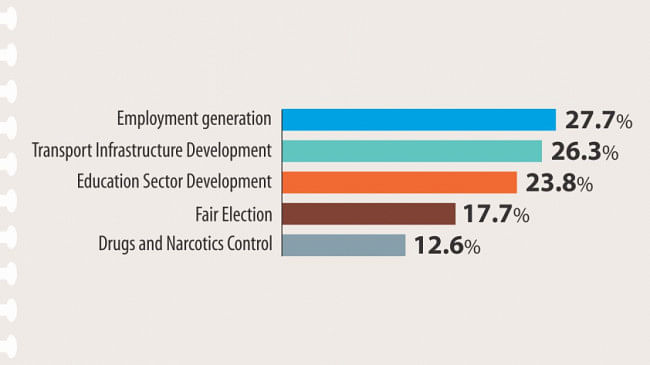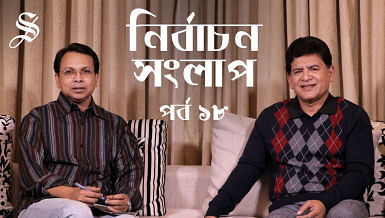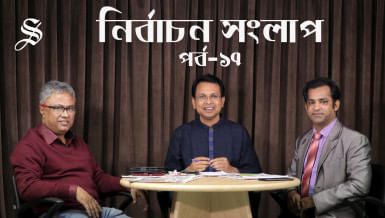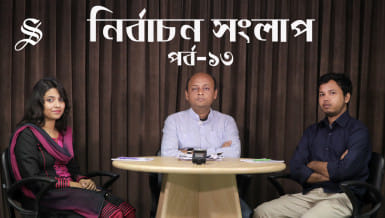Currently, people's top priority is employment, followed by transport and education, finds a Brac survey ahead of the December 30 polls.
During the survey, carried out by the NGO's Advocacy for Social Change (ASC) in September, 5,378 respondents from all the districts and different socio-economic groups, genders, professions and ages were asked about election manifesto, selection of MP candidates and expectations from the next elected government.
At least 27.7 percent respondents said they were looking for a solution to the countrywide unemployment problem, while 26.3 percent want to see development in the transport infrastructure, and nearly 23.8 percent prioritised progress in the education sector.
Demand for a free and fair election came fourth on the list, as 17.17 percent respondents expected to see credible polls.
The Rohingya crisis, which has affected Bangladesh to a great extent and remains an issue of global concern, was named by 4.5 percent respondents.
The survey results have reflected people's perception, Asif Saleh, senior director of strategy, communications and empowerment at Brac, told The Daily Star yesterday.
“The new government, whoever it is, must take up massive measures to create jobs by engaging the private and non-profit sectors.”
He said there had been a jobless growth over the years, and that it was predicted that the job growth might come down in future with automation in industries.
“Therefore, we really need to think differently how to create more jobs for our huge number of youths joining the labour force every year.
“Quality education here is another top issue. We need to focus more on some foundational aspects so that students become analytical and efficient in communications. It will help them be competent in the changing jobs scenario,” he said.
He also said the transport sector, being a public priority, has been really “surprising”. This proves that the mobility of people is growing fast and that they want road safety, he added.
PEOPLE'S PRIORITIES
For new (aged 18-23), young (aged 24-35) or middle-aged voters (36-60), the priority is more or less similar with the top being employment followed by transport and education. But for old aged (60 plus) people, transport infrastructure development is the highest priority, the survey said.
The top three priority areas are same for both male and female, but the number of male who think that employment generation should be the top priority in the election manifesto is higher than that of the female.
On the other hand, education is more important for females than males (24.6pc versus 23.1pc).
Young female participants' priority choices are different from the “usual priority list”. For them, number one priority is transport (27.7pc), followed by employment and education.
At least 38.8 percent of those surveyed in the city corporation areas think employment should be the highest priority, while it was 28.9 percent for the people in rural areas. At least 28.3 percent respondents in rural areas think transport should be the top priority.
People with higher level of education prioritised employment and education, according to the survey.
For farmers and labourers, the most important issue has been found transport. But for the employed and unemployed people as well as students, the most important issue is unemployment.
For the people in Cox's Bazar, the highest priority is fair election, followed by the Rohingya crisis.
KNOWLEDGE ON MANIFESTO
More than two third or 68.6 percent respondents have heard about election manifesto and the knowledge about it is higher among the male participants compared to their female counterparts.
People in Barishal division (81.8pc) and Mymensingh division (81.6pc) know more about election manifesto whereas people from Dhaka division (59.1pc) know about it the least.
Not surprisingly, rural people heard less about election manifesto than those in urban areas. Knowledge about the manifesto is much higher among better educated people.
Though 82.8 percent respondents consider election manifesto as important documents, only one out of four respondents has ever gone through one. But the percentage is significantly low among females than males.
Forty nine percent respondents said candidates' acceptability and qualifications were the key factors that govern voting decisions. And, 30.6 percent respondents said they were influenced by electoral symbols of the parties. Only 6.9 percent respondents consider manifestos before making a voting decision.
But for nearly 53 percent females and middle-aged people (36 to 60), qualification of the candidates are more important in making voting decision, while political party is important for farmers (38.4pc) and businessmen (37.2pc).
For 69.1 percent respondents, commitment towards resolving pressing national issues govern voting decisions, while 25.1 percent respondents said promises to deal with local or regional issues matter most to them.
Interestingly, people living in rural areas, labourers and farmers are more concerned about the local problems.





 For all latest news, follow The Daily Star's Google News channel.
For all latest news, follow The Daily Star's Google News channel. 


Leave your comments